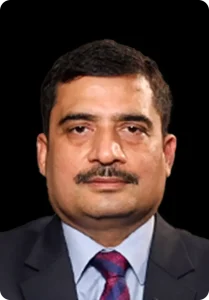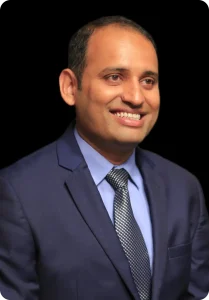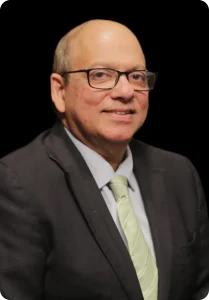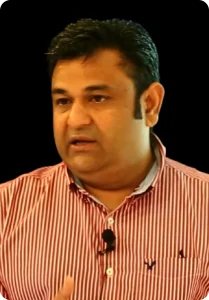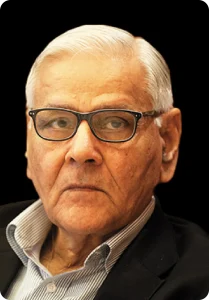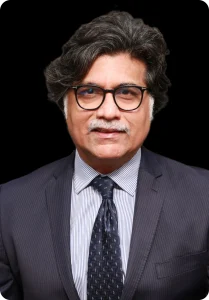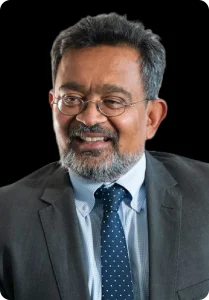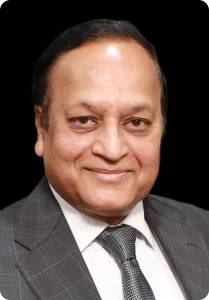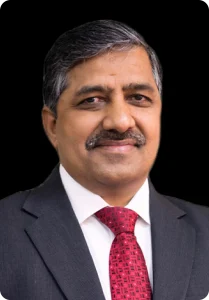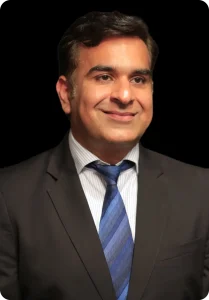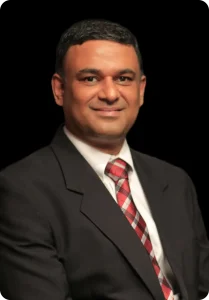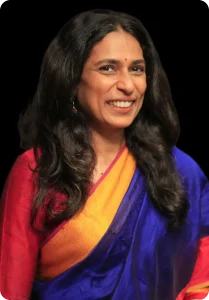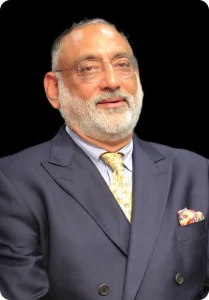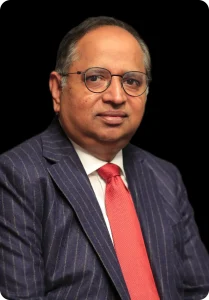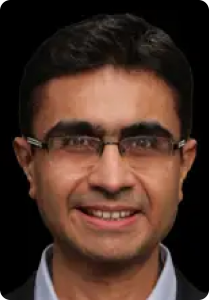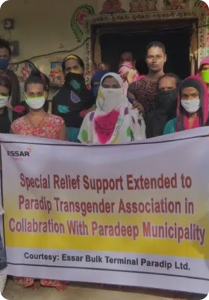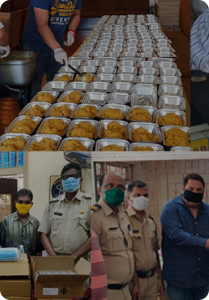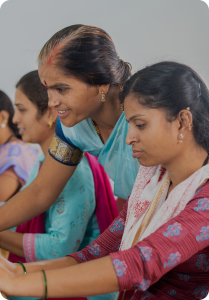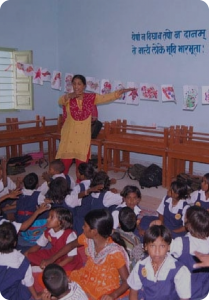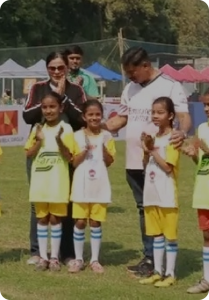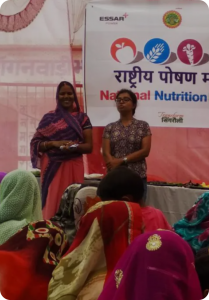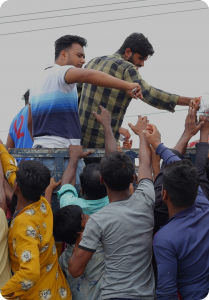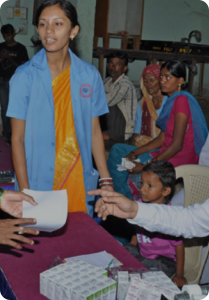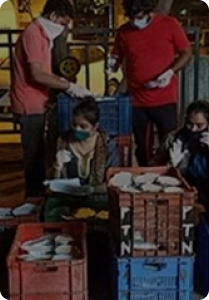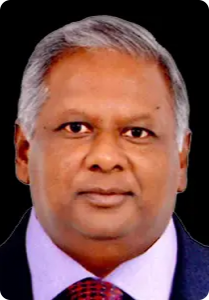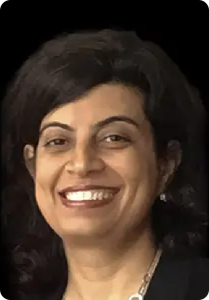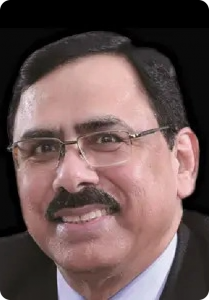India CSR Network
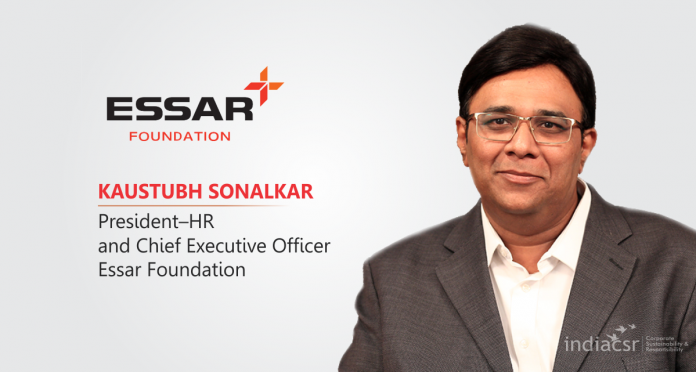
Essar Foundation which is the Corporate Social Responsibility (CSR) arm of Essar, committed to fuelling development of communities around Essar’s business presence. Functional across more than 500 villages in eight states of India, the Foundation facilitates wide-ranging CSR initiatives in health, education, livelihoods, inclusion, women empowerment and skill development. The Foundation reaches out to over 500,000 individuals annually.
We are happy to present an interview of Kaustubh Sonalkar, President-HR and Chief Executive Officer-Essar Foundation. He talked in detail on his view on CSR, business responsibility and foundation contribution made towards social development.
What are your views on CSR, and how is it important to the business?
Responsible businesses carry people along with them in their journey towards growth. CSR allows companies to do just that. It lets them demonstrate their beliefs and values, involve their employees and communicate with them and the outside world. It gives them a chance to let people know about the steps they as companies are taking for a sustainable future. CSR is the tool that helps businesses to partner with civil society and work towards a common goal of development of the society. With the help of CSR, companies can collaborate with diverse stakeholders, especially the local government bodies and community institutions to facilitate sustainable development.
Essar has generated business of more than USD 3bn through nurturing local entrepreneurs over the last decade and has grown in unison with the communities around its presence. Essar Foundation reaches out to over 500 villages across India impacting over half a million individuals annually through its diverse CSR initiatives. The foundation team work relentlessly with communities, while taking the remoteness of locations and challenging local conditions in their stride. We are also among the key influencers of synergistic thought and action shaping the paradigms of CSR and sustainability in India through our flagship venture Knowledge Series.
What are the ‘unique’ features of Essar Foundation and its work?
Essar Foundation is an intellectually rich and diverse organization that prides itself as a knowledge institution. Our projects are executed hands-on by our team of highly experienced personnel and not outsourced. We place great emphasis on partnerships and collaborations. The foundation team is diligently breaking ground to make a difference that is felt. We have tried to make a difference with our projects in the fields of education, women empowerment, livelihoods and entrepreneurship infrastructure, environment and health.
With each passing year, we build upon a strong transparent value proposition and clear performance measures to achieve the goals of sustainability. There are aspects to us as an organization that differentiate us from others.
We reach out to the most unreached, and develop mechanisms to deliver the best in service to rural communities with whom Essar coexists. Whether it is about delivering healthcare access to displaced villages in remote Malkangiri, or nurturing first generation women entrepreneurs in Dantewada, the CSR initiatives designed strategically for these places ensure the most significant results within the given resources.
Essar Foundation has been at the forefront of breakthrough innovations and use of technology for the underserved. The first ever Health ATM at Sukma, Chhattisgarh, state-of-the-art Hemophilia Care center in Surat, and Teleophthalmic Care Center in Paradeep are the best instances of how technology is being leveraged for improving healthcare for underserved communities.
Essar Foundation has also been at the forefront of knowledge creation and sharing when it comes to CSR dialogue in India. With our flagship initiative Knowledge Series, we have been providing for a multi-stakeholder neutral platform for discourse.
Our inclusion model is not segment oriented targeting certain sections of the communities; rather opportunity oriented, i.e. enabling and ensuring that everyone, especially the marginalized, are introduced to opportunities that lead to their growth.
What are the key elements of your future strategy for Essar Foundation?
The Foundation is increasingly focused around livelihood initiatives, especially around improved agriculture and skill development for youth and women. Through our steadily expanding Essar Lok Vikas Kendras, our offerings in new skill trainings are gaining great momentum. The push towards women’s empowerment through entrepreneurship and collective action via self-help groups also remain our strong areas. Our collaborations with government programmes in the arena of quality healthcare accessibility for rural families also will continue to be our focus, while persistently enhancing the existing health infrastructure in underserved regions.
In education, we shall place our resources in revolutionizing digital learning in schools, while promoting activity-based child-friendly teaching and learning processes. Further intensifying sanitation, our teams are working together with local change-makers towards making villages open defecation free and encouraging positive hygiene behavior.
How is Essar Foundation working in the arena of women’s empowerment?
Gender inequalities are multidimensional and the goals of ‘gender equality’ and ‘women’s empowerment’ cannot be reduced to some single and universally agreed upon set of priorities. The socially ascribed burdens on women and socio-cultural dynamics limit female education and opportunities. There are institutional and implementation related impediments and also cultural norms and traditions which shape behaviour and stand in the way of attaining gender parity, especially in the way of economic empowerment.
That is also where the possibilities lie. Our experience in working with women’s groups tells us that there is huge potential in the arena of small businesses. Women demonstrate natural propensity to try new skills and experiment with going beyond their traditional roles. We work on building on this potential at levels, including at family level where the male counterparts and their role is also considered crucial. These women, with skills, entrepreneurial education and handholding support have created opportunities for themselves and other like them towards a journey of self-reliance. From Essar Lok Vikas Kendras and Centers for Women’s Empowerment, first generation women entrepreneurs in Gujarat, Odisha and West Bengal are swiftly bridging the disparities that existed in opportunities for economic independence. This is giving them immense self-confidence to enter avenues and expand their horizons to the extent that they had only once dreamt of.
What are your views on CSR in the education sector?
Given the sheer size of the country with most diverse trajectories of social development based on regional history, there is little surprise in discovering wide divergence in education outcomes across the country. While India can boast of its economic emergence supported through higher education among a privileged fraction of the population, lagging learning outcomes at primary and elementary levels, sometimes despite physical access is a mammoth challenge. Quality education brings people closer to economic opportunities.
We see possibilities in bringing out the best in the existing resources by working on enhancing the approaches towards learning. Our experience tells us that working on the most fundamental levels on a manageable scale can result in fruitful outcomes and learning improvements that are encouraging. Hence, our efforts are placed at making innovations work in and out of classrooms of rural schools so as to equip teachers and students overcome barriers in conventional pedagogy. We promote experiential learning as a genuine way of making children interested in the process of education, and build a culture of co-creation. The focus is on enriching elementary level interventions so as to improve education indicators in the section that’s most in need of improvement.
How has the CSR sector been developing with the Companies Act in place?
The CSR sector is definitely growing, and is expected to grow even further in coming years. So far, there have been significant positive developments as more and more companies are taking up CSR as mandated by the Act. Those that were already doing CSR have enhanced their resources and outreach, as well as intensified the involvement with other partners in development.
The important development in this is the increased collaboration of CSR with government initiatives. This includes both intensive localized engagement like vaccination drives, combating malnutrition, etc. as well as large-scale contributions to national missions like Skill India, Digital India, and in particular, Swachh Bharat. Toilet coverage in semi-urban and rural India has definitely grown in the past few years, and so has the number of corporates engaging in skill development. The sector will mature further in coming years as greater understanding will be built among business leaders to integrate CSR initiatives as shared value initiatives meaningful to the business.
Which one programme has given you the most satisfaction?
Our prized initiative Indradhanush is setting higher benchmarks in child -friendly learning, Indradhanush, is a pioneering initiative in terms of the design, approach and scale of the program. It is a well-planned strategic programme that brings real change in terms of embedding activity based learning in the classroom. It has so far reached out to over 10,000 students (from Std IV to X) and 500 teachers across States like West Bengal, Gujarat, and even Chhattisgarh.
The entire program is designed around making Math, Science and Environment Education simpler, interesting and approachable by making them interesting. These are the subjects in which students face maximum difficulties, failure and even drop out. To do this, there is a phased training program to build capacity of teachers. There is also hands-on involvement of the best resource agencies and NGOs are brought to a single platform, where each organization comes with its own area of expertise. E.g. Katha – storytelling, digital learning & theater, CEE – environment education games, Supersonic Aeromodellers – aeromodelling, Jeevan Tirth – Origami, Green the Blue – local biodiversity, etc. Activities are specially curated keeping in view the curriculum, local context and learning levels of students, and diverse mediums of learning (art, digital learning, theatre, storytelling, dance & music, games, model making) are employed to do these activities. There is a different focus theme each year, e.g. science in everyday life, seven mediums of learning, biodiversity and astronomy. For instance, use of storytelling in learning a concept of Physics, or use of origami in learning geometry, or using local art form in explaining topics of Zoology. It enriches the interaction between student and teacher through co-creation making learning. It is an integrated program with pre-event and post event follow up activities to ensure in-depth impact.
This is a high impact initiative received very well by all collaborators – local administration, education department, parents and students, all of who actively contribute in making Indradhanush a sustainable initiative. This, as an endeavour, is the first of its kind that aims to empower both learners and teachers to innovate and co-create in the teaching learning process. Indradhanush has been featured in reputed international journal Ethical Performance, and has won several prestigious awards. I wish to see it scaled up to several other schools across the country, providing genuine learning opportunities to children especially in rural India.
Source: India CSR Network


